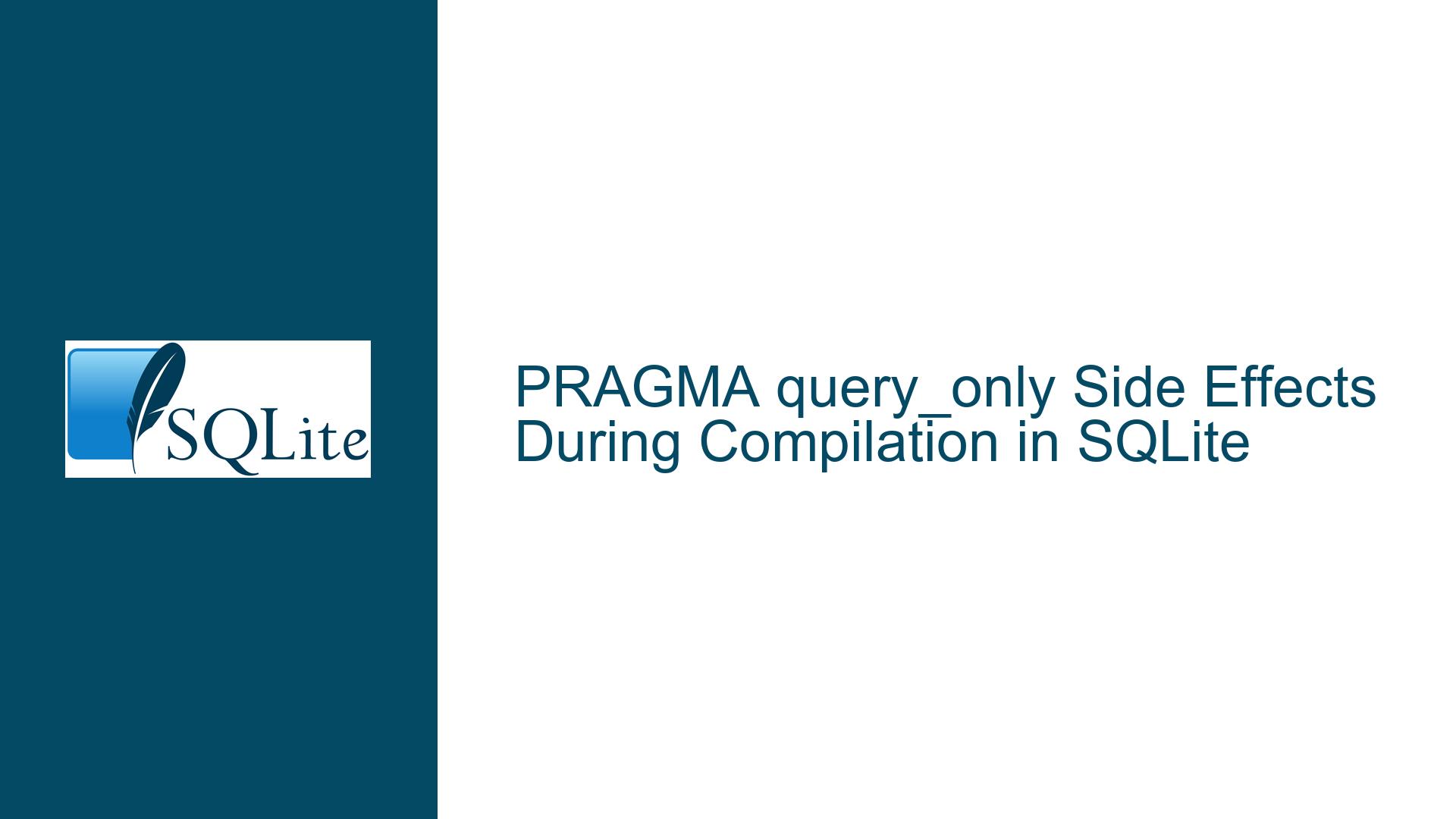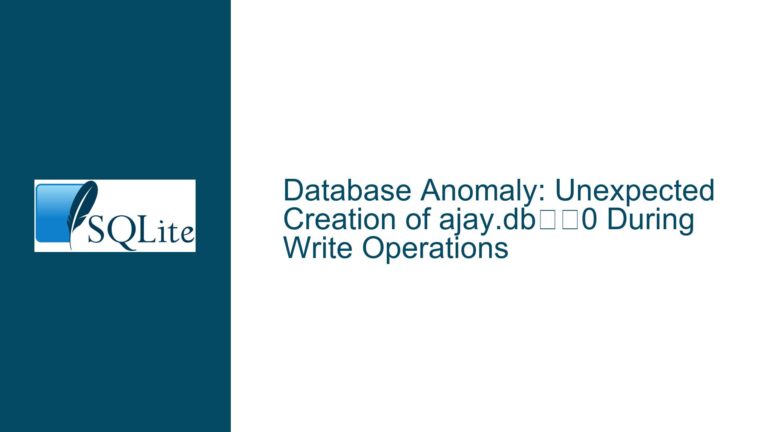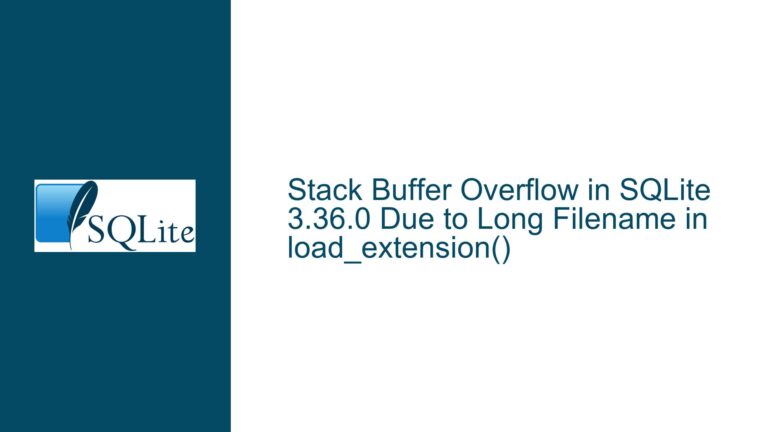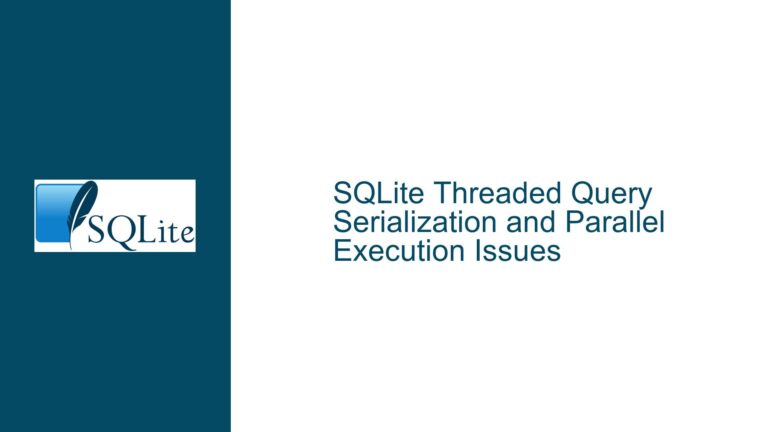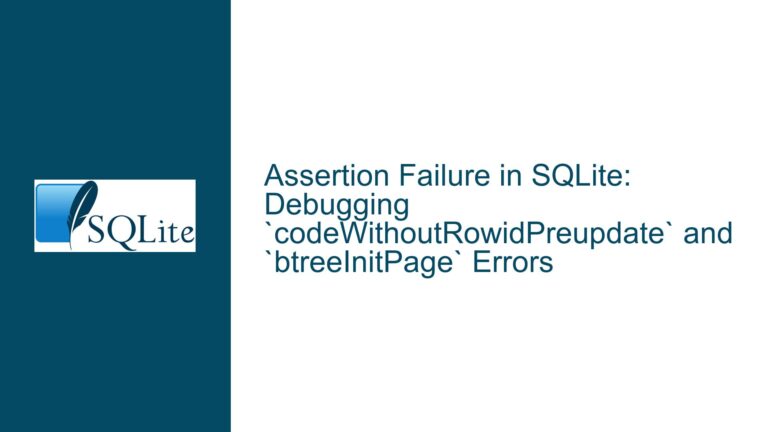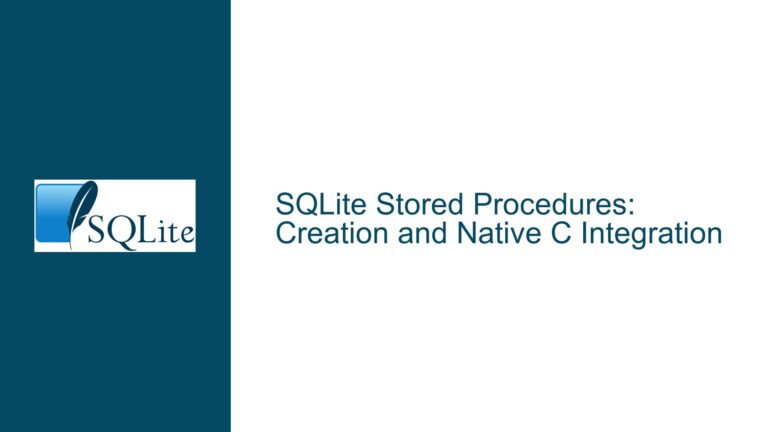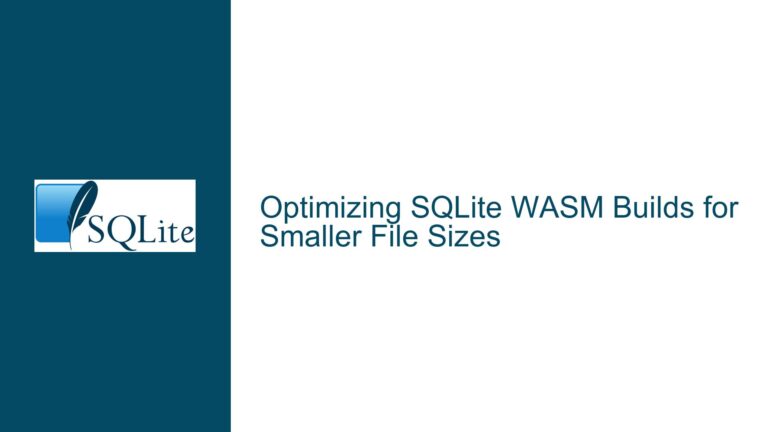PRAGMA query_only Side Effects During Compilation in SQLite
PRAGMA query_only Behavior During Compilation vs. Execution
The core issue revolves around the behavior of the PRAGMA query_only directive in SQLite, specifically how it takes effect during the compilation stage of a statement rather than during execution. This behavior can lead to unexpected side effects, particularly when the statement is prepared but not executed. The problem manifests when PRAGMA query_only=OFF is compiled using sqlite3_prepare_v3 and reset using sqlite3_reset, which inadvertently switches the database from read-only mode to read/write mode without explicitly executing the statement. This behavior is documented but can be counterintuitive for developers who expect the pragma to take effect only upon execution.
The issue is particularly relevant in scenarios where developers rely on PRAGMA query_only to enforce read-only access to a database. For example, in a multi-user application or a library like GRDB.swift, ensuring that the database remains in read-only mode until explicitly switched is critical for data integrity. The current behavior of PRAGMA query_only can undermine this expectation, leading to potential bugs or security vulnerabilities.
The problem is compounded by the fact that SQLite’s behavior is consistent with its documentation, which states that some pragmas take effect during the SQL compilation stage rather than execution. This means that the behavior is not a bug but a design choice that has been in place for over two decades. However, this design choice can still cause confusion and unintended side effects, especially for developers who are unaware of this nuance.
Causes of PRAGMA query_only Side Effects During Compilation
The root cause of this issue lies in how SQLite handles pragmas internally. Pragmas in SQLite are special commands that modify the behavior of the database engine or query its state. Some pragmas, like PRAGMA query_only, are designed to take effect immediately upon compilation of the SQL statement. This means that as soon as the statement is prepared using sqlite3_prepare_v3, the pragma’s effect is applied, even if the statement is never executed.
This behavior is intentional and is documented in the SQLite documentation. Specifically, the documentation states that certain pragmas take effect during the SQL compilation stage, not during execution. This design choice was made to optimize performance and ensure consistency in the database’s behavior. However, it can lead to unexpected results, especially in scenarios where developers assume that the pragma will only take effect upon execution.
Another contributing factor is the lack of awareness among developers about this behavior. While the documentation does mention this nuance, it is easy to overlook, especially for developers who are new to SQLite or who are accustomed to databases where pragmas take effect only upon execution. This lack of awareness can lead to bugs that are difficult to diagnose, as the behavior may not be immediately obvious.
Additionally, the issue is exacerbated by the fact that SQLite does not provide a built-in mechanism for statement caching. Many developers implement their own statement caches to improve performance, but these caches can introduce additional complexity and potential pitfalls. For example, if a cached statement includes a pragma like PRAGMA query_only, the pragma’s effect may be applied prematurely, leading to unintended side effects.
Troubleshooting PRAGMA query_only Side Effects and Implementing Solutions
To address the issue of PRAGMA query_only taking effect during compilation, developers can take several steps to ensure that their applications behave as expected. These steps include understanding the behavior of pragmas in SQLite, implementing workarounds to mitigate the issue, and advocating for improvements in SQLite’s handling of pragmas.
Understanding the Behavior of Pragmas in SQLite
The first step in troubleshooting this issue is to thoroughly understand how pragmas work in SQLite. Developers should carefully read the documentation, paying particular attention to the section on pragmas and their behavior during compilation versus execution. This will help developers anticipate potential issues and design their applications accordingly.
Implementing Workarounds
One effective workaround is to avoid using PRAGMA query_only in scenarios where its behavior during compilation could cause issues. Instead, developers can use alternative mechanisms to enforce read-only access to the database. For example, they can use file system permissions to restrict write access to the database file or implement application-level checks to ensure that write operations are not performed when the database is in read-only mode.
Another workaround is to ensure that PRAGMA query_only statements are always executed immediately after being prepared. This can be done by explicitly calling sqlite3_step after preparing the statement, rather than relying on sqlite3_reset alone. This ensures that the pragma’s effect is applied only when intended, rather than during compilation.
Advocating for Improvements in SQLite
While the current behavior of PRAGMA query_only is documented and intentional, it may still be worth advocating for improvements in SQLite’s handling of pragmas. For example, developers can propose the addition of a new pragma or a flag that allows pragmas to take effect only during execution. This would provide greater flexibility and reduce the risk of unintended side effects.
Additionally, developers can advocate for the inclusion of a built-in statement cache in SQLite. A built-in cache would simplify the implementation of statement caching and reduce the risk of issues related to pragmas taking effect prematurely. As discussed in the forum thread, a statement cache could be implemented with a flag like SQLITE_CAN_CACHE, which would allow statements to be cached and reused without causing unintended side effects.
Best Practices for Using PRAGMA query_only
To minimize the risk of issues related to PRAGMA query_only, developers should follow best practices when using this pragma. These best practices include:
- Always executing
PRAGMA query_onlystatements immediately after preparing them, rather than relying onsqlite3_resetalone. - Using alternative mechanisms to enforce read-only access to the database, such as file system permissions or application-level checks.
- Thoroughly testing applications to ensure that
PRAGMA query_onlybehaves as expected in all scenarios. - Staying informed about updates to SQLite and its documentation, as changes to the behavior of pragmas may be introduced in future versions.
By following these best practices, developers can reduce the risk of unintended side effects and ensure that their applications behave as expected when using PRAGMA query_only.
In conclusion, the issue of PRAGMA query_only taking effect during compilation rather than execution is a documented behavior in SQLite that can lead to unexpected side effects. By understanding this behavior, implementing workarounds, and advocating for improvements, developers can mitigate the risks associated with this issue and ensure that their applications function as intended.
